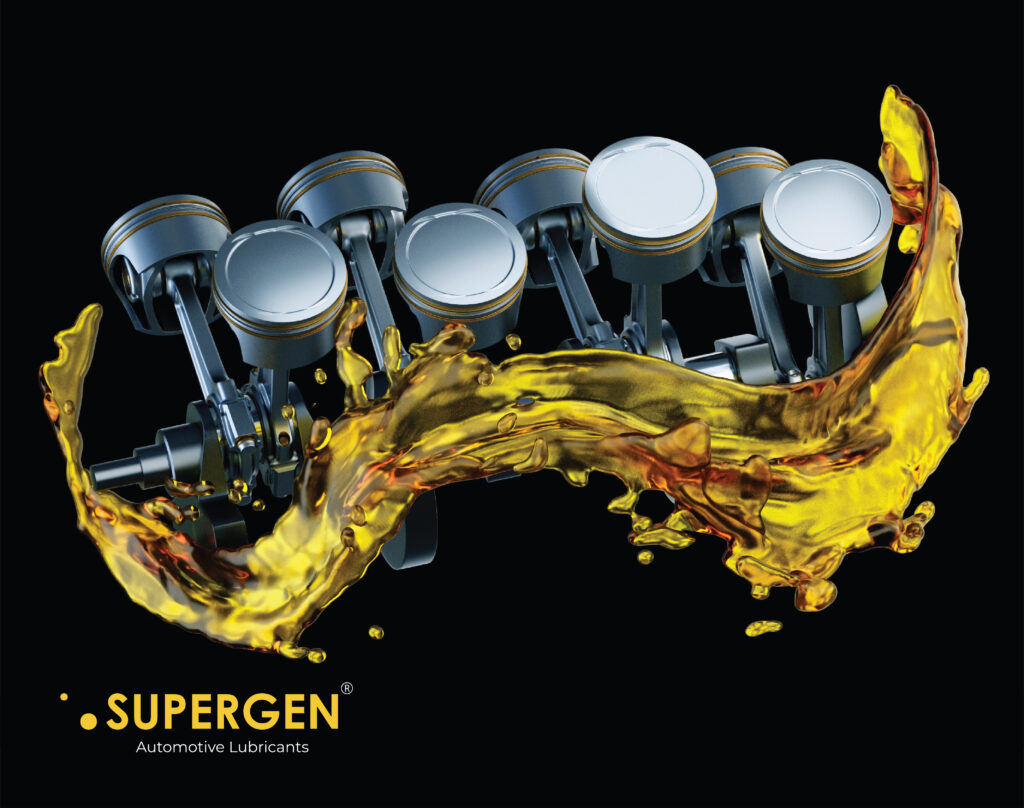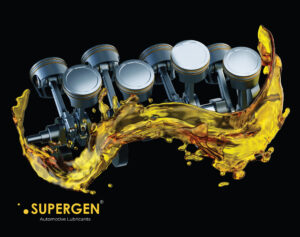Diesel engines have long been the backbone of industries such as transportation, agriculture, and construction. Known for their durability and efficiency, they power everything from trucks and buses to generators and heavy machinery.
However, keeping a diesel engine in top-notch condition requires more than just regular maintenance—it demands the use of specialized oil formulas designed specifically for the unique requirements of diesel engines.
Let’s do a deep dive into the importance of specialized oil formulas, how they protect diesel engines, and what to look for when choosing the right oil for your vehicle or equipment.
Why Diesel Engines Need Specialized Oil
Unlike gasoline engines, diesel engines operate under higher compression ratios and temperatures, resulting in more stress on engine components. Additionally, they tend to produce more soot and acidic by-products due to the combustion process.
These factors create a challenging environment where ordinary engine oils fall short.
Specialized oil formulas for diesel engines are designed to:
- Reduce wear and tear on engine components
- Prevent sludge and deposit buildup
- Neutralize acidic contaminants
- Enhance fuel efficiency
- Extend engine life
Without the right oil, diesel engines can suffer from accelerated wear, reduced performance, and even catastrophic failure.
Key Functions of Specialized Diesel Engine Oil
To better understand how specialized oil formulas protect diesel engines, let’s explore their key functions:
1. Lubrication
The primary role of engine oil is to reduce friction between moving parts. Diesel engines have numerous high-pressure components, such as the pistons, camshaft, and crankshaft, that require constant lubrication.
Specialized oil formulas create a protective film that minimizes direct contact between metal surfaces, thereby reducing friction and wear.
2. Heat Dissipation
Diesel engines generate significant heat due to high compression and combustion temperatures. Specialized oils help dissipate this heat away from critical components, ensuring the engine operates within safe temperature ranges.
Proper heat management prevents overheating and prolongs engine life.
3. Contaminant Suspension
Diesel combustion produces soot, ash, and other contaminants that can accumulate in the engine. If left unchecked, these contaminants can form sludge and deposits, clogging oil passages and reducing engine efficiency.
Specialized oils are formulated with advanced detergents and dispersants that suspend contaminants, keeping the engine clean.
4. Acid Neutralization
Diesel fuel contains sulfur, which, during combustion, produces sulfuric acid. This acidic by-product can corrode engine components if not neutralized.
Specialized oils include additives that neutralize acids, preventing corrosion and maintaining engine integrity.
5. Protection Against Oxidation
Exposure to high temperatures can cause oil to oxidize, leading to thickening and the formation of harmful deposits. Specialized oil formulas are designed with oxidation inhibitors that slow down the oxidation process, ensuring the oil retains its protective properties for longer periods.
Types of Specialized Oil for Diesel Engines
Not all diesel engine oils are created equal. Different engines and operating conditions require specific oil formulations. Here are the common types of specialized oils:
1. Synthetic Diesel Engine Oil
Synthetic oils are manufactured using chemically engineered base oils and advanced additives. They offer superior performance in extreme temperatures, provide better oxidation stability, and reduce engine wear.
Synthetic oils are ideal for modern diesel engines that operate under high loads and temperatures.
2. Semi-Synthetic Diesel Engine Oil
Semi-synthetic oils are a blend of synthetic and mineral oils. They provide a balance between performance and cost, offering better protection than conventional oils while being more affordable than fully synthetic options.
3. Conventional Diesel Engine Oil
Conventional oils are derived from refined crude oil and are suitable for older diesel engines with lower performance requirements. While they may lack the advanced properties of synthetic oils, they still offer adequate protection for less demanding applications.
4. High-Mileage Diesel Engine Oil
High-mileage oils are specially formulated for engines with over 75,000 miles (120,000 km) on the odometer. They contain seal conditioners to prevent leaks and additives to reduce oil consumption and protect worn engine components.
Key Additives in Specialized Diesel Engine Oils
The performance of diesel engine oil largely depends on its additive package. Here are some key additives and their roles:
1. Detergents and Dispersants
These additives keep the engine clean by preventing the formation of sludge and varnish. Detergents neutralize acidic by-products, while dispersants suspend contaminants, allowing them to be trapped by the oil filter.
2. Anti-Wear Agents
Anti-wear agents, such as zinc dialkyldithiophosphate (ZDDP), form a protective layer on metal surfaces, reducing wear and extending engine life.
3. Viscosity Index Improvers
These additives help the oil maintain a stable viscosity across a wide temperature range, ensuring consistent lubrication in both hot and cold conditions.
4. Oxidation Inhibitors
Oxidation inhibitors prevent oil thickening and the formation of harmful deposits by slowing down the oxidation process.
5. Corrosion and Rust Inhibitors
These additives protect metal surfaces from corrosion caused by moisture and acidic contaminants.
6. Foam Inhibitors
Foaming can reduce the oil’s ability to lubricate and cool the engine. Foam inhibitors prevent the formation of foam, ensuring consistent performance.
How to Choose the Right Diesel Engine Oil
Selecting the right oil for your diesel engine is crucial for ensuring optimal performance and longevity. Here are some factors to consider:
1. Viscosity Grade
Viscosity refers to the oil’s thickness and its ability to flow at different temperatures. Diesel engines typically require oil with a viscosity grade specified by the manufacturer, such as 15W-40 or 5W-30. Always follow the manufacturer’s recommendation for the best results.
2. API and ACEA Ratings
Look for oils that meet the American Petroleum Institute (API) and European Automobile Manufacturers’ Association (ACEA) standards. Common API ratings for diesel engines include CJ-4, CK-4, and FA-4, indicating the oil’s performance level.
3. OEM Approvals
Some vehicle and equipment manufacturers have specific oil requirements and offer their own approvals. Check if the oil has been approved by your engine’s manufacturer.
4. Operating Conditions
Consider the environment in which your diesel engine operates. If you’re working in extreme temperatures or under heavy loads, opt for synthetic oil with high-performance additives.
Benefits of Using Specialized Diesel Engine Oil
Using the right oil formula offers several benefits, including:
1. Improved Engine Performance
Specialized oils reduce friction and wear, ensuring smooth operation and better fuel efficiency.
2. Extended Engine Life
By protecting critical components from wear, corrosion, and deposits, specialized oils help extend the engine’s lifespan.
3. Lower Maintenance Costs
A well-lubricated engine experiences fewer breakdowns and requires less frequent repairs, resulting in lower maintenance costs.
4. Enhanced Fuel Economy
Reduced friction means the engine doesn’t have to work as hard, improving fuel economy and reducing emissions.
5. Longer Oil Change Intervals
High-quality specialized oils offer better oxidation stability and contaminant control, allowing for longer oil change intervals.
Common Myths About Diesel Engine Oil
There are several misconceptions about diesel engine oil that can lead to improper maintenance practices. Let’s debunk a few:
Myth 1: All Engine Oils Are the Same
Fact: Diesel engines require oils with specific additives and properties that differ from those used in gasoline engines. Using the wrong oil can lead to increased wear and engine damage.
Myth 2: Thicker Oil Is Always Better
Fact: While thicker oil may provide better protection in some cases, using oil that’s too thick can reduce fuel efficiency and cause starting problems in cold weather.
Myth 3: You Can Use Any Oil Additive for Better Performance
Fact: Not all additives are compatible with diesel engine oils. Using incompatible additives can disrupt the oil’s formulation and reduce its effectiveness.
Final Thoughts
Protecting diesel engines with specialized oil formulas is essential for ensuring their performance, efficiency, and longevity.
By choosing the right oil and adhering to regular maintenance schedules, you can keep your diesel engine running smoothly for years to come.
Whether you’re driving a long-haul truck, operating heavy machinery, or running a diesel-powered generator, investing in high-quality specialized oil is a smart decision.
After all, a well-maintained engine not only saves you money but also ensures reliability when you need it the most.








